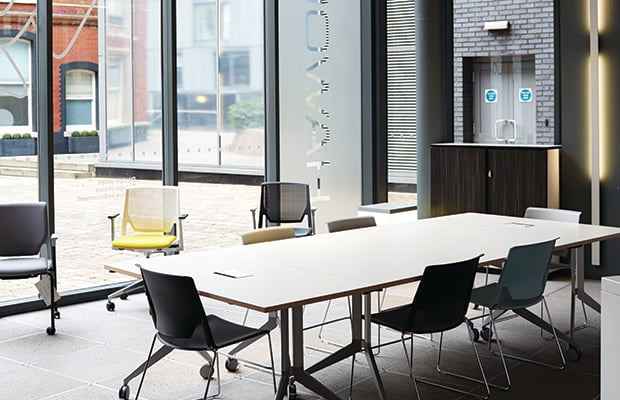In 2012, the Olympic Games spurred a movement towards flexible working, making it a viable scheme for workers across the UK. What began as attempts to avoid the heavy traffic on the road during the craziness of the Games proved to have a lasting impact in the world of work.
What started as concerns around over-flowing public transportation during the international games, turned into a trend in working that has stuck around long enough that its impact is still felt amidst this years’ 2016 Olympic ceremonies. Though flexible working as a concept has been around for a while, the Olympics spearheaded the notion that it could really contribute to productivity and yield positive results, as one in five companies in London were persuaded to try out the policy.
Here’s a white paper you may like to read: Creating Agile Organizations
 Overall, what was seen was a newfound capability for effective job performance outside of the workplace. Employers who enacted the scheme not only saw improved staff retention, but a reduced rate of absenteeism as well. Following the 2012 Summer Games, Vodafone put out a survey to observe how people’s attitudes towards flexible working had changed over the summer. Amongst the findings such as employees citing increased productivity, was a strong picture of how technology came into play in making flexible making successful.
Overall, what was seen was a newfound capability for effective job performance outside of the workplace. Employers who enacted the scheme not only saw improved staff retention, but a reduced rate of absenteeism as well. Following the 2012 Summer Games, Vodafone put out a survey to observe how people’s attitudes towards flexible working had changed over the summer. Amongst the findings such as employees citing increased productivity, was a strong picture of how technology came into play in making flexible making successful.
A survey conducted by Portal found that almost two thirds of companies that allowed employees to engage in a flexible working scheme during the Olympics saw little to no reduction in terms of productivity. A true commitment to the progression of flexible working was seen as almost forty-one per cent of companies invested in new technology for these purposes.
The research following flexible working trials during the 2012 Olympics helped to change perceptions into knowledge that there was a way for flexible schemes to be efficient.
Managing flexible working schemes for maximum efficiency is a multifaceted task. Putting technology in place which helps employers to keep track of how their central office space is used, for instance, enables them to make space savings off the back of flexible working practices. Further, putting in place the unified communications tools that enable employees to collaborate from wherever they are is important to making the scheme a long term success.
Flexible working, often introduced in response to specific events, has in fact become a true system of operations for businesses around the world. Though many are adapting and embracing, many are hesitant to employ flexible working as a permanent part of work. Yet with the right technology in place they can be sure to see productivity boosts and long term viability. As this year’s 2016 Summer Olympics come to a close, the evaluation of the future of work carries on, as it continues to be reshaped and influenced by the events of our daily lives.